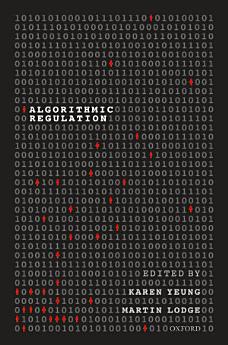Algorithmic Regulation
Karen Yeung · Martin Lodge
2019 സെപ്റ്റം · Oxford University Press
ഇ-ബുക്ക്
304
പേജുകൾ
family_home
യോഗ്യതയുണ്ട്
info
reportറേറ്റിംഗുകളും റിവ്യൂകളും പരിശോധിച്ചുറപ്പിച്ചതല്ല കൂടുതലറിയുക
ഈ ഇ-ബുക്കിനെക്കുറിച്ച്
As the power and sophistication of of 'big data' and predictive analytics has continued to expand, so too has policy and public concern about the use of algorithms in contemporary life. This is hardly surprising given our increasing reliance on algorithms in daily life, touching policy sectors from healthcare, transport, finance, consumer retail, manufacturing education, and employment through to public service provision and the operation of the criminal justice system. This has prompted concerns about the need and importance of holding algorithmic power to account, yet it is far from clear that existing legal and other oversight mechanisms are up to the task. This collection of essays, edited by two leading regulatory governance scholars, offers a critical exploration of 'algorithmic regulation', understood both as a means for co-ordinating and regulating social action and decision-making, as well as the need for institutional mechanisms through which the power of algorithms and algorithmic systems might themselves be regulated. It offers a unique perspective that is likely to become a significant reference point for the ever-growing debates about the power of algorithms in daily life in the worlds of research, policy and practice. The range of contributors are drawn from a broad range of disciplinary perspectives including law, public administration, applied philosophy, data science and artificial intelligence. Taken together, they highlight the rise of algorithmic power, the potential benefits and risks associated with this power, the way in which Sheila Jasanoff's long-standing claim that 'technology is politics' has been thrown into sharp relief by the speed and scale at which algorithmic systems are proliferating, and the urgent need for wider public debate and engagement of their underlying values and value trade-offs, the way in which they affect individual and collective decision-making and action, and effective and legitimate mechanisms by and through which algorithmic power is held to account.
രചയിതാവിനെ കുറിച്ച്
Karen Yeung is Interdisciplinary Professorial Fellow in Law, Ethics and Informatics at Birmingham Law School & School of Computer Science, University of Birmingham. She is also Distinguished Visiting Fellow at Melbourne Law School. Martin Lodge is Professor of Political Science and Public Policy and Director of the Centre for Analysis of Risk and Regulation (carr) at the London School of Economics and Political Science.
ഈ ഇ-ബുക്ക് റേറ്റ് ചെയ്യുക
നിങ്ങളുടെ അഭിപ്രായം ഞങ്ങളെ അറിയിക്കുക.
വായനാ വിവരങ്ങൾ
സ്മാർട്ട്ഫോണുകളും ടാബ്ലെറ്റുകളും
Android, iPad/iPhone എന്നിവയ്ക്കായി Google Play ബുക്സ് ആപ്പ് ഇൻസ്റ്റാൾ ചെയ്യുക. ഇത് നിങ്ങളുടെ അക്കൗണ്ടുമായി സ്വയമേവ സമന്വയിപ്പിക്കപ്പെടുകയും, എവിടെ ആയിരുന്നാലും ഓൺലൈനിൽ അല്ലെങ്കിൽ ഓഫ്ലൈനിൽ വായിക്കാൻ നിങ്ങളെ അനുവദിക്കുകയും ചെയ്യുന്നു.
ലാപ്ടോപ്പുകളും കമ്പ്യൂട്ടറുകളും
Google Play-യിൽ നിന്ന് വാങ്ങിയിട്ടുള്ള ഓഡിയോ ബുക്കുകൾ കമ്പ്യൂട്ടറിന്റെ വെബ് ബ്രൗസർ ഉപയോഗിച്ചുകൊണ്ട് വായിക്കാവുന്നതാണ്.
ഇ-റീഡറുകളും മറ്റ് ഉപകരണങ്ങളും
Kobo ഇ-റീഡറുകൾ പോലുള്ള ഇ-ഇങ്ക് ഉപകരണങ്ങളിൽ വായിക്കാൻ ഒരു ഫയൽ ഡൗൺലോഡ് ചെയ്ത് അത് നിങ്ങളുടെ ഉപകരണത്തിലേക്ക് കൈമാറേണ്ടതുണ്ട്. പിന്തുണയുള്ള ഇ-റീഡറുകളിലേക്ക് ഫയലുകൾ കൈമാറാൻ, സഹായ കേന്ദ്രത്തിലുള്ള വിശദമായ നിർദ്ദേശങ്ങൾ ഫോളോ ചെയ്യുക.







